Official14托福阅读Passage3 Pastoralism in Ancient Inner Eurasia文本+题目原文+答案解析【雷哥托福】
2019-01-27 11:59:00 发布 来源:雷哥托福TPO14托福阅读Passage3 Pastoralism in Ancient Inner Eurasia文本+题目原文+答案解析
Pastoralism in Ancient Inner Eurasia
Pastoralism is a lifestyle in which economic activity is based primarily on livestock. Archaeological evidence suggests that by 3000 B.C., and perhaps even earlier, there had emerged on the steppes of Inner Eurasia the distinctive types of pastoralism that were to dominate the region's history for several millennia. Here, the horse was already becoming the animal of prestige in many regions, though sheep, goats, and cattle could also play a vital role. It is the use of horses for transportation and warfare that explains why Inner Eurasian pastoralism proved the most mobile and the most militaristic of all major forms of pastoralism. The emergence and spread of pastoralism had a profound impact on the history of Inner Eurasia, and also, indirectly, on the parts of Asia and Europe just outside this area. In particular, pastoralism favors a mobile lifestyle, and this mobility helps to explain the impact of pastoralist societies on this part of the world
The mobility of pastoralist societies reflects their dependence on animal-based foods. While agriculturalists rely on domesticated plants, pastoralists rely on domesticated animals. As a result, pastoralists, like carnivores in general, occupy a higher position on the food chain. All else being equal, this means they must exploit larger areas of land than do agriculturalists to secure the same amount of food, clothing, and other necessities. So pastoralism is a more extensive lifeway than farming is. However, the larger the terrain used to support a group, the harder it is to exploit that terrain while remaining in one place. So, basic ecological principles imply a strong tendency within pastoralist lifeways toward nomadism (a mobile lifestyle). As the archaeologist Roger Cribb puts it, 'The greater the degree of pastoralism, the stronger the tendency toward nomadism.' A modern Turkic nomad interviewed by Cribb commented: "The more animals you have, the farther you have to move.
Nomadism has further consequences. It means that pastoralist societies occupy and can influence very large territories. This is particularly true of the horse pastoralism that emerged in the Inner Eurasian steppes, for this was the most mobile of all major forms of pastoralism. So, it is no accident that with the appearance of pastoralist societies there appear large areas that share similar cultural, ecological, and even linguistic features. By the late fourth millennium B.C., there is already evidence of large culture zones reaching from Eastern Europe to the western borders of Mongolia. Perhaps the most striking sign of mobility is the fact that by the third millennium B.C., most pastoralists in this huge region spoke related languages ancestral to the modem Indo-European languages. The remarkable mobility and range of pastoral societies explain, in part, why so many linguists have argued that the Indo-European languages began their astonishing expansionist career not among farmers in Anatolia (present-day Turkey), but among early pastoralists from Inner Eurasia. Such theories imply that the Indo-European languages evolved not in Neolithic (10,000 to 3,000 B.C.) Anatolia, but among the foraging communities of the cultures in the region of the Don and Dnieper rivers, which took up stock breeding and began to exploit the neighboring steppes.
Nomadism also subjects pastoralist communities to strict rules of portability. ■If you are constantly on the move, you cannot afford to accumulate large material surpluses. ■Such rules limit variations in accumulated material goods between pastoralist households (though they may also encourage a taste for portable goods of high value such as silks or jewelry). ■So, by and large, nomadism implies a high degree of self-sufficiency and inhibits the appearance of an extensive division of labor. ■Inequalities of wealth and rank certainly exist, and have probably existed in most pastoralist societies, but except in periods of military conquest, they are normally too slight to generate the stable, hereditary hierarchies that are usually implied by the use of the term class. Inequalities of gender have also existed in pastoralist societies, but they seem to have been softened by the absence of steep hierarchies of wealth in most communities, and also by the requirement that women acquire most of the skills of men, including, often, their military skills.
TPO14 托福阅读Passage3 Pastoralism in Ancient Inner Eurasia 题目
Question 1 of 13: The word “prestige” in the passage is closest in meaning to
A. interest
B. status
C. demand
D. profit
Question 2 of 13: According to paragraph 1, what made it possible for Inner Eurasian pastoralism to become the most mobile and militaristic form of pastoralism?
A. It involved the domestication of several types of animals.
B. It was based primarily on horses rather than on other animals.
C. It borrowed and improved upon European ideas for mobility and warfare.
D. It could be adapted to a wide variety of environments.
Question 3 of 13: The word "profound” in the passage is closest in meaning to
A. strange
B. positive
C. direct
D. far-reaching
Question 4 of 13: In paragraph 2, why does the author contrast pastoralists with agriculturalists?
A. To explain why pastoralism requires more land than agriculturalism to support basic needs
B. To identify some advantages that mobile societies have over immobile societies
C. To demonstrate that ecological principles that apply to pastoralism do not apply to agriculturalism
D. To argue that agriculturalism eventually developed out of pastoralism
Question 5 of 13: According to paragraph 2, pastoralists tend to
A. prefer grazing their animals on agricultural lands
B. consume comparatively large amounts of food and clothing
C. avoid eating plant foods
D. move from place to place frequently
Question 6 of 13: In paragraph 3, why does the author discuss languages spoken in the region spanning from Eastern Europe to the western borders of Mongolia?
A. To emphasize the frequency with which Indo-European languages changed as a result of the mobile nature of pastoralism
B. To indicate one method linguists use to determine that inhabitants of the Don and Dnieper river area had taken up stock breeding
C. To provide evidence that Indo-European languages have their roots in what is now Turkey
D. To provide evidence that pastoralist societies can exercise cultural influence over a large area
Question 7 of 13: The word "striking” in the passage is closest in meaning to
A. reliable
B. noticeable
C. convincing
D. violent
Question 8 of 13: The word "exploit” in the passage is closest in meaning to
A. use to advantage
B. depart from
C. pay attention to
D. travel across
Question 9 of 13: According to paragraph 4, the fact that pastoralist communities are subject to “strict rules of portability” encourages such communities to
A. relocate less frequently than they would otherwise
B. have households that are more or less equal in wealth
C. become self-sufficient in the manufacture of silk and jewelry
D. share large material surpluses with neighboring communities
Question 10 of 13: According to paragraph 4, all of the following are true of social inequality in pastoralist societies EXCEPT:
A. It exists and has existed to some degree in most pastoral societies.
B. It is most marked during periods of military conquest.
C. It is expressed in the form of a rigid hierarchy based largely on heredity.
D. It is usually too insignificant to be discussed in terms of class differences.
Question 11 of 13: Which of the sentences below best expresses the essential information in the highlighted sentence in the passage? Incorrect choices change the meaning in important ways or leave out essential information.
A. Despite the fact that wealth is relatively evenly distributed in pastoral societies, gender inequality still exists because only men can acquire military skills and social status.
B. Inequalities of gender existed in pastoralist societies until most communities began to require women to possess the same skills as men and take part in the military.
C. Inequalities of gender in pastoralist societies were caused by steep hierarchies of wealth and differences in military training between men and women.
D. In pastoral societies, gender inequality is comparatively mild because wealth is relatively evenly distributed and women have to learn most of the same skills that men do.
Question 12 of 13: Look at the four squares [■] that indicate where the following sentence could be added to the passage. Where would the sentence best fit? Click on a square to add the sentence to the passage.
There is a good reason for this.
A. If you are constantly on the move, you cannot afford to accumulate large material surpluses.
B. Such rules limit variations in accumulated material goods between pastoralist households (though they may also encourage a taste for portable goods of high value such as silks or jewelry).
C. So, by and large, nomadism implies a high degree of self-sufficiency and inhibits the appearance of an extensive division of labor.
D. Inequalities of wealth and rank certainly exist, and have probably existed in most pastoralist societies, but except in periods of military conquest, they are normally too slight to generate the stable, hereditary hierarchies that are usually implied by the use of the term class.
Question 13 of 13: Directions: An introductory sentence for a brief summary of the passage is provided below. Complete the summary by selecting the THREE answer that express the most important ideas in the passage. Some sentences do not belong in the summary because they express ideas that not presented in the passage or are minor ideas in the passage. This question is worth 2 points.
By 3000 B.C., a distinctive form of pastoralism had appeared on the steppes of Inner Eurasia.
Answer Choices
A. The domesticated horse is primarily responsible for Inner Eurasian pastoralism's success in mobility and warfare.
B. As pastoralists traveled across large areas of terrain with their domesticated animals, they traded valuable material goods such as silks and jewelry.
C. Because pastoralists are highly mobile, they tend to have few material possessions and can influence the culture, ecology, and language of very large areas.
D. Because pastoralism requires a great deal of land to support its animal-based lifeway, pastoralists must continually relocate and have comparatively egalitarian societies.
E. Most scholars now believe that Indo-European languages probably evolved during the Neolithic period in the region of the Don and Dnieper rivers.
F. Pastorslist communities do not have social classes in the usual sense because they value spiritual attainment over material wealth.
TPO14托福阅读Passage3Pastoralism in Ancient Inner Eurasia 真题解析
Question 1 of 13
正确答案:B
解析:prestige“威望,声望”,所以B的status正确。原句说在很多地方马已经成为了什么的象征,后面一个让步说尽管牛羊也很重要,应该是说马更重要才对。
Question 2 of 13
正确答案:B
解析:以most mobile and most militaristic做关键词定位至倒数第三句,提到用马匹做运输和战争的工具使得远古内欧的畜牧业最mobile最militaristic,答案是B。
Question 3 of 13
正确答案:D
解析: profound“深远的”,所以答案far-reaching正确。原句说pastoralism的出现和发展对欧亚大陆内部的历史有什么样的影响,当然还有仅在此之外的欧洲和亚洲,所以应该是影响范围广大,所以答案是D。
Question 4 of 13
正确答案:A
解析:题干的关键信息是contrast pastoralists with agriculturalists,本段前两句正好介绍了pastoralists 和 agriculturalists的特点,紧接着As a result引导的两句话就说明了对比的目的,游牧民族就像食肉动物一样,在食物链中占据了较高的等级,所以需要更多地盘。所以对比的目的就是解释为什么游牧民族需要占领更多地方,答案是A。
Question 5 of 13
正确答案:D
解析:这个题没有明显突出的定位信息词,但是倒数第二句说到的引用句'The greater the degree of pastoralism, the stronger the tendency toward nomadism.' 句中的tendency的动词就是tend to,句子中说,游牧民族的游牧程度越深,那么nomadism的特征也越明显,那么什么是nomadism呢?在前一句中说到,a mobile lifestyle,也就对应D选项。
Question 6 of 13
正确答案:D
解析:目的题,根据题干定位到原段落的第三和第四句,说由于游牧民族的存在,出现了很大一块地域范围内共享相似的, 生态上的,文化上的甚至语言上的特点。紧接着就说了语言上的一个例子,所以语言的这个例子是为了证明前文的,答案是D。
Question 7 of 13
正确答案:B
解析:striking意思是“明显的,引人注意的”,noticeable正确。前一句提到在公元前四千年,就有证据证明有文化区域的传播,从东欧到蒙古西部边境,接着说或许最怎么样的证明是什么……前面已经有了一个evidence,后面再说应该是加强作用的,所以答案是B。
Question 8 of 13
正确答案:A
解析:exploit“利用,开采,剥削”,所以A正确。本句提到已经把原来有的草用完了,然后怎么样临近的草原,当然就是“去临近的草原吃”的意思,所以应当猜得出开发之意。
Question 9 of 13
正确答案:B
解析:定位到段落的第二和第三句,If you are constantly on the move, you cannot afford to accumulate large material surpluses. ■Such rules… (though they may also encourage a taste for portable goods of high value such as silks or jewelry). 说这些规则限制了大家拥有的财产的差别,也就是说大家的财富都差不多,所以答案是B。 they are normally too slight,也就是财富上的不平等是很轻微的。
Question 10 of 13
正确答案:C
解析:题目问的游牧民族社会的social inequality体现在文章中的哪些方面,除了哪个选项不是,排除法解题,A选项对应“Inequalities of wealth and rank certainly exist…”;B选项对应“but except in periods of military conquest”这句;D选项对应“they are normally…”这句。
Question 11 of 13
正确答案:D
解析:原句的结构是性别不平等也存在在游牧民族社会,但是被not only 和but also的两个因素给削弱了。这个结构分析清楚之后,只有D选项正确。
Question 12 of 13
正确答案:A
解析:注意reason for this,插入句前后的两个句子必须是因果关系,而待插入句只是一句过渡句而已。A处之后说了游牧民族遵守规则的原因,B点的such rules之前必须有指代,所以B排除;重点注意上下句应该是前果后因的关系,选A。这里注意C是前因后果。
Question 13 of 13
正确答案:ACD
解析: the domesticated选项对应原文第一段内容,正确;because pastoralists选项对应原文第三段的内容,正确;because pastoralism选项对应原文第四段内容,正确。
全套TPO阅读原文+题目文本+答案解析手册(合计1300页文档),在雷哥托福微信公众号获取
雷哥托福上课详情请咨询老师
1、请联系官方QQ:2250281936;
2、请联系官方个人微信号:toefl12345;
3、请咨询官方电话:400-6021-727;
【使用提示】
1、雷哥托福在线直播课,不限地域,全球考生均可报名参与。
2、获取更多托福信息,请关注雷哥托福微信公众号:toeflgo






 400-1816-180
400-1816-180







































































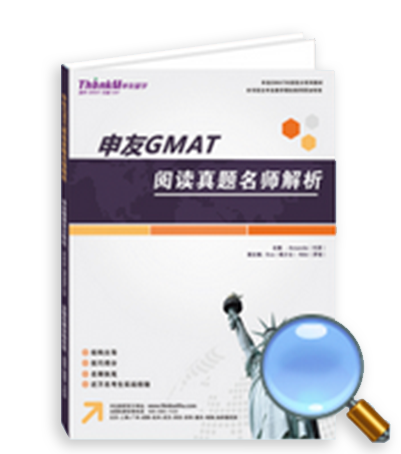
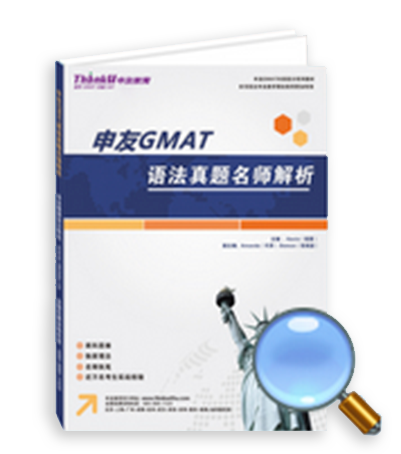
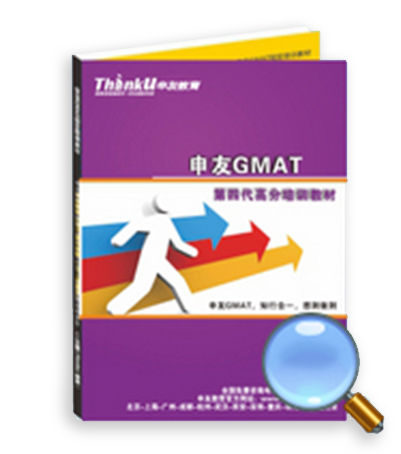

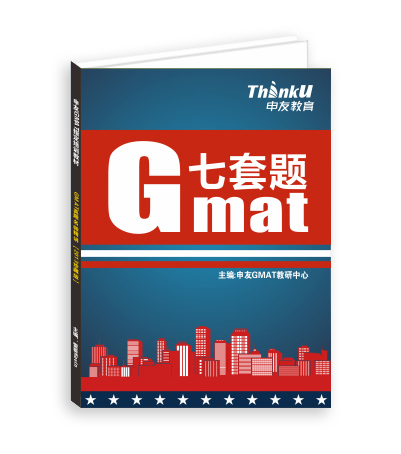
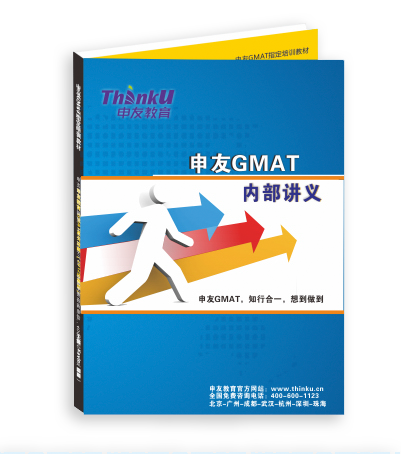



 请填写手机号
请填写手机号










 12G备考资料
12G备考资料
 直播
直播



















 分享成功
分享成功









 托福预测|2020年1月11日&12日托福考试机经预测最全资料版!
托福预测|2020年1月11日&12日托福考试机经预测最全资料版!
























草莓小菇凉:说的非常好,十分有道理,棒棒棒!
06-08 15:44:55